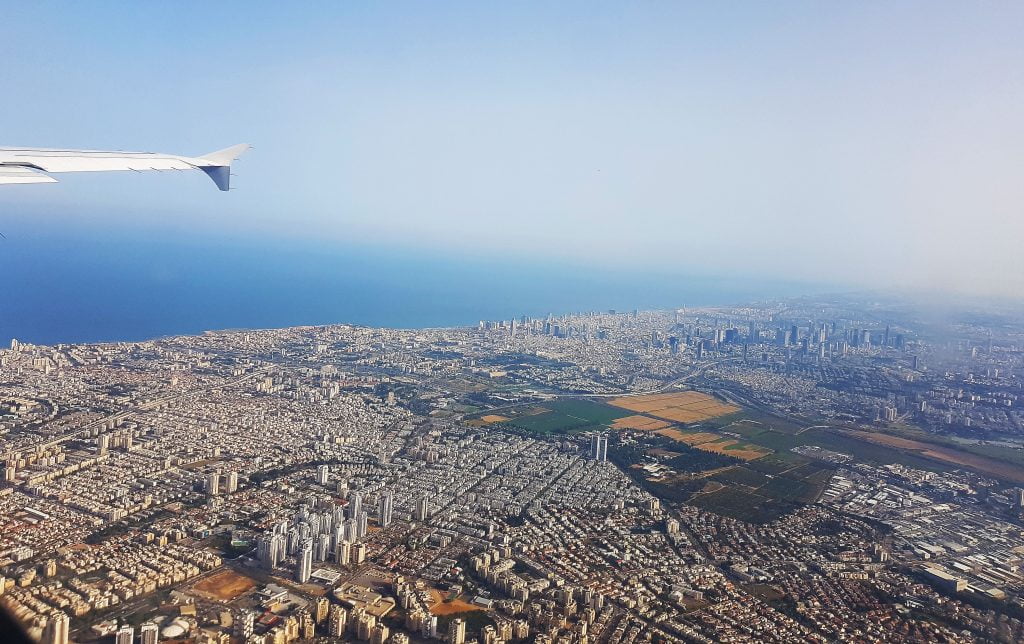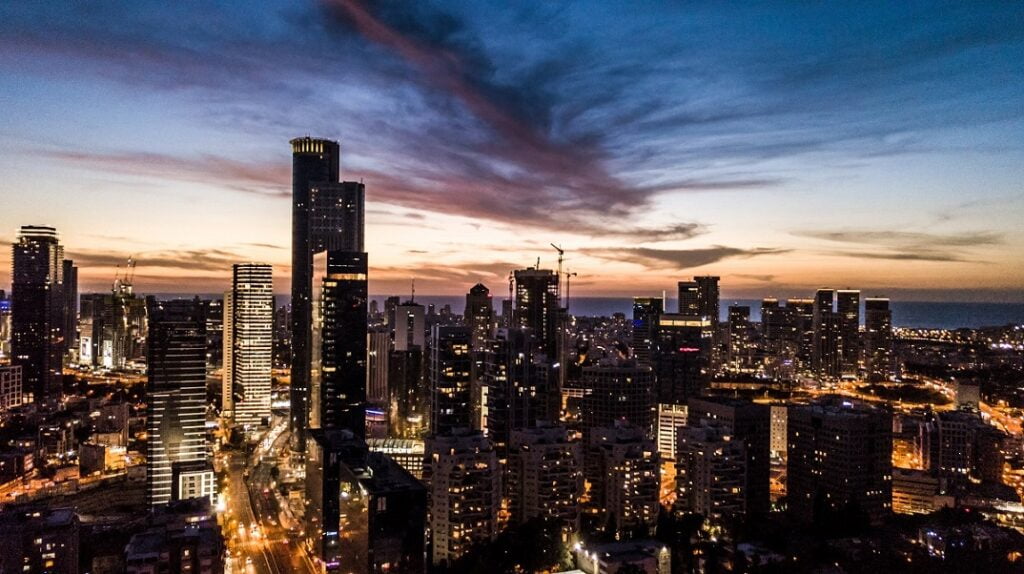Israel’s tech ecosystem has ranked third globally and Tel Aviv came in eighth among cities in the new Global Startup Ecosystem Index 2021 published this month by StartupBlink, an Israeli-founded startup ecosystem research center.
The index is compiled from a variety of data sources processed by an algorithm and is integrated with the interactive and crowdsourced StartupBlink Global Startup Ecosystem Map. Data from StartupBlink’s global data partners, such as Crunchbase, Semrush, and Meetup, are also incorporated to supplement the analyses.
The report provides two sets of rankings: the first is for countries, and the second for individual ecosystems within cities. Each location has a total score, which is a sum of three scores measuring Quantity, Quality, and Business Environment. The scores have comparative importance, providing unique insights into the differences between different ecosystems in absolute terms.
Building upon past years’ algorithms, this year’s report gave more weight to B2B startups, added more parameters related to technological services in the datasets, and increased data gathering of the R&D centers of international corporations.
Country Ranking
The US maintained its lead in the country ranking, demonstrating a prominent innovation scene across 267 US cities. The UK came second, with a significantly narrowed lead over third-ranked Israel compared to last year. This dramatic change could be attributed to the relative Quality score of the startup ecosystems, according to the report.
Israel ranks second globally in Hardware and IoT, Health Technology, and the Software and Data industries, and it ranks in the world’s top 5 in Energy and Environment Technology, Marketing and Sales Technology, and Social and Leisure Technology.

In the Middle East and Africa region, Israel remains the main player by a significant margin. Three of the top four ranked cities in the region are in Israel, with Tel Aviv first, Jerusalem second, and Haifa taking third.
The United Arab Emirates ranked second in the region, followed by South Africa, Kenya, and Nigeria closing out the top five.
Israel’s Startup Ecosystem
Israel’s development into a high-quality ecosystem is brought forth by a hub of a vibrant community of startups and innovations. These include fintech companies such as Payoneer, an Israeli-founded online payments startup to become publicly traded in $3.3 billion; transportation startups including Mobileye, Intel’s Jerusalem-based subsidiary working to deploy autonomous public vehicles in Europe by 2023; and the Israeli advertising company Taboola, which would go public on the NYSE at a $2.6 billion valuation.
SEE ALSO: Israeli Startups Smash Funding Records, Reel In $10.5B In Just Six Months
The success of Israel’s ecosystem could also be partly attributed to the leadership of the Israeli public sector. The Israel Innovation Authority, an independent agency established to provide funding platforms to promote innovation development, has offered programs to support local entrepreneurs.
Israel is also a major draw for multinationals and global corporations, with many operating R&D centers, innovation labs or local offices in the country to tap into the local talent.
Sign up for our free weekly newsletter
SubscribeCity Ranking
The top two city startup ecosystems remain the same as last year, with San Francisco taking the lead followed by New York. Beijing comes third with Los Angeles ranking fourth, London ranking fifth, Boston sixth, and Shanghai seventh, forming the “Big 7.”
The score gaps of cities ranked lower than the “Big 7” appear to be much smaller, indicating that situations are fluid and dynamic.

The city of Tel Aviv is ranked eighth globally and first in Israel, which has demonstrated a decrease of one spot since last year. Jerusalem, with a global rank of 54, has increased by a single spot and is the second-highest ranked city in Israel. Haifa has maintained its upward trend, increasing 24 spots to 119th globally and third nationally.
The report made a special note of the northern Israeli city of Yokneam, which ranked 16th nationally (and moved up 12 spots to 284th globally) as “a particularly inspiring case study of a small town relatively far from other cities in Israel that has received tax benefits and used them in a cost-efficient way to create a strong hub that produced a unicorn in its vibrant tech park.” This is in reference to the acquisition of Mellanox by Nvidia for $7 billion in 2020.
Three Tel Aviv-based Israeli startups were also featured as ecosystem champions, including Appsflyer, the mobile attribution and marketing analytics platform; virtual Work OS Monday.com which recently completed one of the largest IPO filing for an Israeli company on the Nasdaq; and Gett, a technology platform focused on corporate ground transportation management.
In Jerusalem, content creation app developer Lightricks, and BrainQ, a developer of AI-powered technology to treat neuro disorders, were mentioned as notable startups.
Future Prospects
Looking forward, the report suggests Israel shore up Tel Aviv’s position as a global hub facing growing competition from Asia, Europe, and the US. In the meantime, it should strengthen development in Jerusalem and other cities. Israeli’s regulatory reforms would also bring its Business score to an increase.
SEE ALSO: Israel Drops To 7th Spot In 2021 Bloomberg Index Of Innovative Countries
The report also notes the maturing cybersecurity industry as a source of substantial potential for Israel. The Israeli cybersecurity sector brought in $1.5 billion in funding in 2021 across 17 deals, in the first quarter of the year.
“Many countries try to copy the Israeli model of innovation, but this ecosystem is hard to replicate. It relies on entrepreneurs who are risk-takers by nature, and a geopolitical situation which incentivizes innovation as a critical need for survival,” the report noted.
Related posts

Editors’ & Readers’ Choice: 10 Favorite NoCamels Articles

Forward Facing: What Does The Future Hold For Israeli High-Tech?

Impact Innovation: Israeli Startups That Could Shape Our Future




Facebook comments